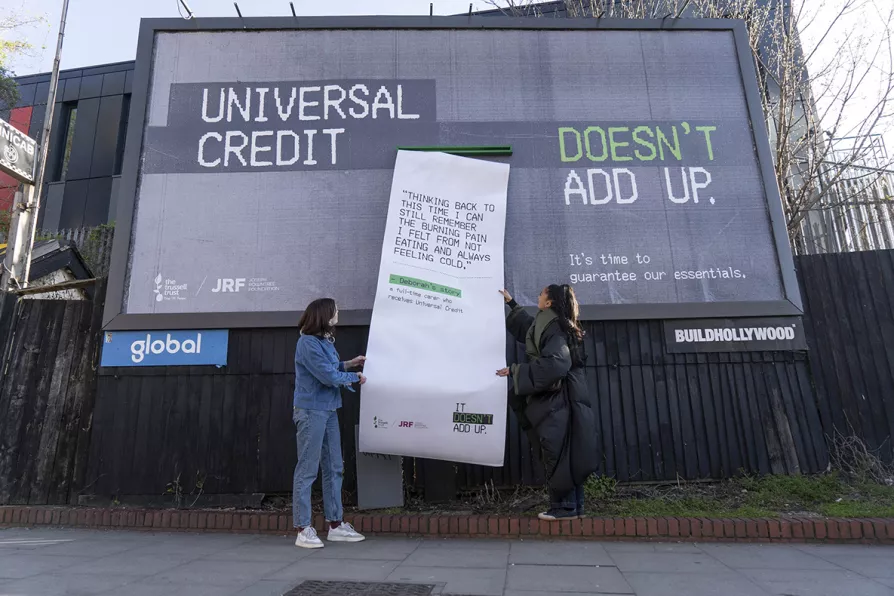Disabled could be £2,800 a year worse off under universal credit, think tank finds

 British actor Charlotte Ritchie (left) and singer/songwriter Joy Crookes tear off a giant receipt from a billboard installation near Finsbury Park Tube station in London, commissioned by the Trussell Trust and the Joseph Rowntree Foundation as part of their 'It Doesn't Add Up Campaign', aiming to highlight issues following the launch of the new Universal Credit amount, April 4, 2023
British actor Charlotte Ritchie (left) and singer/songwriter Joy Crookes tear off a giant receipt from a billboard installation near Finsbury Park Tube station in London, commissioned by the Trussell Trust and the Joseph Rowntree Foundation as part of their 'It Doesn't Add Up Campaign', aiming to highlight issues following the launch of the new Universal Credit amount, April 4, 2023
THOUSANDS of disabled people are poorer under universal credit (UC), according to a Resolution Foundation report.
The think tank found that single people with a long-term disability that stops them working could end up £2,800 a year worse off under UC, as opposed to claiming under the legacy system.
The report also said that by 2028, the total entitlements to UC would cost around £86 billion a year — £14bn less than if the government had kept the 2013/14 benefits system.
Similar stories

Any positives from the government’s green paper proposals are vastly overshadowed by the scale of the cuts to vulnerable low-income households, argues JENNY RATHBONE MS

Labour is deliberately continuing Tory policies that cost us £38 billion more than they save while driving illness rates higher — despite the evidence that previous sanctions doubled suicide attempts, writes CLAUDIA WEBBE












